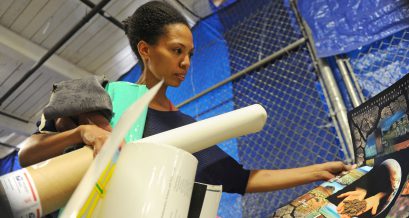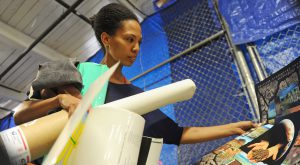Maryland’s public schools are among the nation’s finest, ranking at the top in numerous national studies. This is something to celebrate, because it means children are getting a running start to a successful future. Unfortunately, not every child has the same experience.
-
Making school attendance a community priority
Monday, December 10, 2012Baltimore is making progress in our schools with the help of new investment and much-needed reforms. We know, however, that our efforts to improve facilities and teacher performance can only be successful if every student is present and ready to learn.
-
The Disconnected: Youth, Policy, Work
Sunday, December 09, 2012“Work is about a search for daily meaning as well as daily bread, for recognition as well as cash, for astonishment rather than torpor; in short, for a sort of life, rather than a Monday-to-Friday sort of dying.” Pulitzer Prize winning author Studs Terkel wrote this in his classic oral history Working, and is the […]
-
Second Chance Education
Monday, November 26, 2012A young man I have tutored for a few years recently got his GED. He left Baltimore City public schools in the fifth-grade. “Dropout” is not an appropriate description for a fifth-grader. Over a number of years he has spent time in juvenile detention, group homes, and the Baltimore City Detention Center. When I met […]
-
Maryland DREAMERS give me hope
Monday, November 12, 2012“So happy all my friends get to go to college!” This is what my daughter, a sophomore at Trinity College, texted me when it became clear, late on election night, that 58 percent of voters had approved the Maryland DREAM Act, which will help thousands of undocumented students access higher education in the state over the next several years. A rush of tears came to my eyes, surprising me. It was a mixture of parental pride, patriotism, and hope.
-
High expectations for Baltimore’s youth
Monday, October 15, 2012This August, Writers in Baltimore Schools held its first sleepaway writing camp, the weeklong Baltimore Young Writers Studio. We’ve held two-day writing studios in Baltimore before, but this year, we took fourteen kids between the ages of twelve to sixteen to the woods of western Maryland for an intensive writing experience. It was a homegrown project, staffed by local writers and Teach for America dynamos, and created in the image of the writing camp that perhaps changed the direction of my young life, the Iowa Young Writers’ Studio.
-
Back to School Baltimore!
Monday, August 20, 2012Imagine the first day of school; students energized by their long summer holiday, excited to see friends from the prior year, eager to meet their new teachers, curious about where their cubbies or lockers are, prepared to turn in important information like their health cards for the school nurse and their emergency cards for the office, and ready to get back into the swing of things at school. The first day sets the tone for the year and presents students with lots of critical information: introductions, goals and expectations.
-
A much better plan for kids statewide
Wednesday, August 01, 2012All children in Maryland, well behaved or otherwise, are guaranteed the right to an education. Yet, schools across the state are pushing children out with high rates of suspensions, primarily for non-violent acts.
-
A humane education: teaching positive reinforcement in the classroom
Monday, July 23, 2012The Kids-4-K9s Humane Education Program offers students and teachers an opportunity to focus on positive changes, instead of failures. “I like the way we ignore Bella when she doesn’t get it right and wait to praise her when she does,” one third grade student shared as part of his journal entry for the session. It is this kind of reflection and sharing that promotes real learning and growth that can extend far beyond the classroom.
-
More than just a garden
Monday, July 16, 2012We live in a time when the social contract between individual and society has become implicit. We forget that as individuals we engage in our community, our government, and with our neighbors because they are there for our benefit as we are for theirs—to make our lives better than if we went on alone. For the members of low-income, underserved communities such as Brooklyn/Curtis Bay however, this contract has failed.



